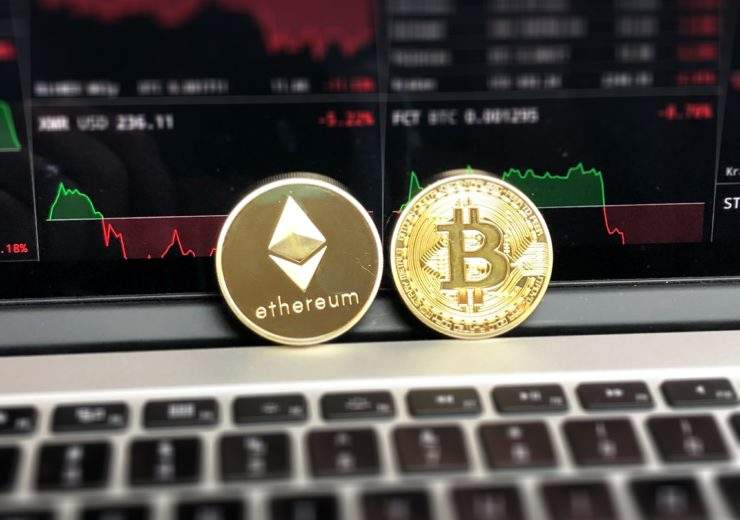Blockchain technology could be worth $2 trillion by 2030, says an analyst who spoke about the rise of the cryptocurrency technology at London Tech Week

If 2030 is anything like an episode of Black Mirror, then expect driverless cars cruising down the M1, robots serving in shops and neural implants monitoring our every move.
On top of that sci-fi vision, blockchain technology – a digitised, decentralised, public ledger of all cryptocurrency transactions – could be taking the world by storm.
In 12 years, blockchain will be worth $2 trillion (£1.4 trillion), according to analyst Don Tait.
He gave his forecast on blockchain technology during a presentation at the Blockchain 360 event, part of London Tech Week.
Mr Tait, principal cyber, digital security and blockchain analyst at IHS Markit, a tech analyst firm, said:”I’m putting my head on the line here, I’m saying by 2030 the value of blockchain technology will likely reach $2 trillion – that’s my probable forecast. I’m optimistic.
“This is because of a significant number of projects that are currently at the beginning stages, they will likely go live.
“The more credible blockchains, which have realistic models, are the ones that are likely to be here in the next five to six years.”

Blockchain is here to stay
Many people have heard about blockchain and there’s been a lot of hype around the data storage technology and it looks like it’s here to stay.
People have often got blockchain and Bitcoin mixed up, although the two coincide – the chain was first on the market to enable Bitcoin transactions.
It allows trade to take place using a decentralised and transparent process – users can share, replicate, synchronise and distribute databases in a safe and secure way – as the transactions are entered chronologically and secured by cryptographic sealing, making it difficult to steal or fabricate.
Mr Tait said: “A misconception about blockchain is that it is Bitcoin – but cryptocurrencies are traded using blockchain technology.
“There are also different types of blockchains – you can have the private, commissioned and also hybrid ones.”
By 2025, 10% of the global GDP will be stored on blockchain or blockchain-related products
It’s so versatile and resourceful, many industries are now integrating blockchain.
Companies such as retail corporation Walmart use it to track its beef products across China – saving the company time spent on monitoring.
It is also a favourite among the Chinese government.
Mr Tait said: “Governments can often change their mind in regards to blockchain.
“For instance, although China was negative against the cryptocurrencies, towards the end of last month, the Chinese president [Xi Jinping] described blockchain as a way forward for technology.
“If we look at the World Economic Forum, it predicts that by 2025, 10% of the global GDP [gross domestic product] will be stored on blockchain or blockchain-related products.
“That’s a massive number to come out of it – if you think in 2017, the global GDP was $79 trillion – so that’s a huge number.”
According to data provided by independent market researcher Autonomous Research, blockchain technology companies could experience revenue pools of $6bn (£4bn) by 2020, and $20bn (£14bn) by 2030, as well as compound annual growth rate of 12% between 2020 and 2030.
The financial industry has invested more than $1bn (£747m) in the past 14 months to support blockchain consortia, pilot programmes, companies and other efforts to create a consensus about implementing blockchain.
More than 20 billion internet of things devices are also expected to exist by 2020, and blockchain will be at the forefront to offer its services.
Although there’s daily reports about the technology, it is still fairly new and there’s still experiments around what it can do and what some of its benefits are.
Mr Tait said: “I’d say, with blockchain technology, we are currently at the early stages of the market.
“Companies are still experimenting, no one single solution will win, and no one single chain will win, there’s a multitude of companies out there, and it will all depend on the certitude and the application.”
It could all change overnight
While a $2 trillion value might sound high for blockchain technology, in similar fashion to stocks and cryptocurrencies, it is something that could change overnight.
At the start of the year, the market capital on all cryptocurrencies was about $800bn (£598bn), but since then they tumbled massively.
In the past few months they were between $300bn (£224bn) and $400bn (£299bn).
Also showing how erratic the markets are, at the start of January 2017, Bitcoin was worth around $1,000 (£747), in December 2017 it reached an estimated $20,000 (£15,000) and later dropped by approximately 50% since January – and hasn’t shown signs of recovery since.
Mr Tait said: “There are also a vast number of cryptocurrencies. The last time I looked there are over the 1,600 mark and not all cryptocurrencies are likely to survive.
“There’s some that are going to fizzle out and not even reach ICO [initial coin offering] status.”
He believes, similar to all markets and businesses, there will be strong survivors and those that won’t last.
“I think it’s fair to say there are good, bad and ugly blockchain projects and ICOs out there.”
“In my opinion, the more credible ones with realistic plans that solve the problems of today, those are the ones that are going to be here in the next five to six years,” he added.


